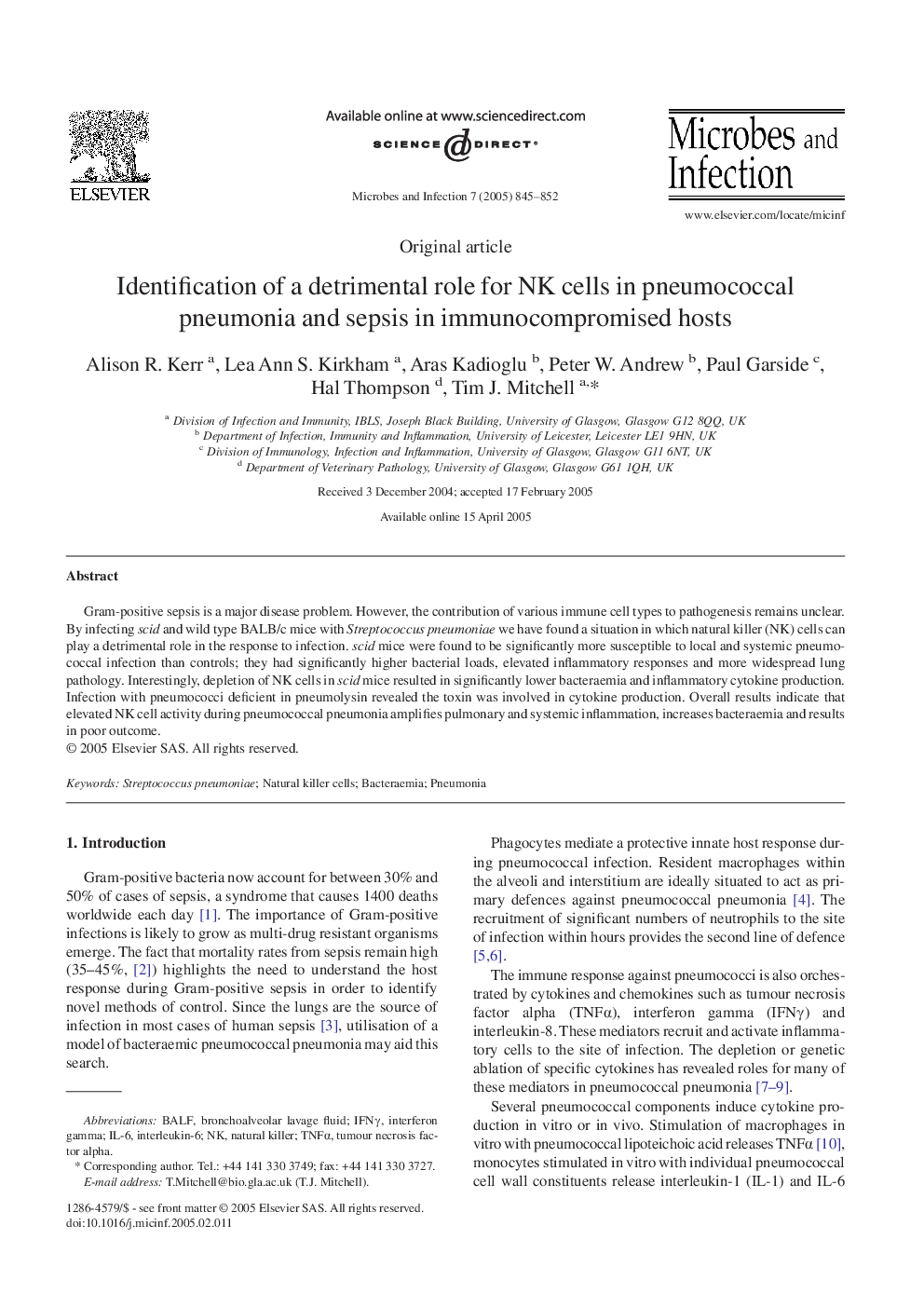| Article ID | Journal | Published Year | Pages | File Type |
|---|---|---|---|---|
| 9282887 | Microbes and Infection | 2005 | 8 Pages |
Abstract
Gram-positive sepsis is a major disease problem. However, the contribution of various immune cell types to pathogenesis remains unclear. By infecting scid and wild type BALB/c mice with Streptococcus pneumoniae we have found a situation in which natural killer (NK) cells can play a detrimental role in the response to infection. scid mice were found to be significantly more susceptible to local and systemic pneumococcal infection than controls; they had significantly higher bacterial loads, elevated inflammatory responses and more widespread lung pathology. Interestingly, depletion of NK cells in scid mice resulted in significantly lower bacteraemia and inflammatory cytokine production. Infection with pneumococci deficient in pneumolysin revealed the toxin was involved in cytokine production. Overall results indicate that elevated NK cell activity during pneumococcal pneumonia amplifies pulmonary and systemic inflammation, increases bacteraemia and results in poor outcome.
Keywords
Related Topics
Life Sciences
Immunology and Microbiology
Immunology
Authors
Alison R. Kerr, Lea Ann S. Kirkham, Aras Kadioglu, Peter W. Andrew, Paul Garside, Hal Thompson, Tim J. Mitchell,
